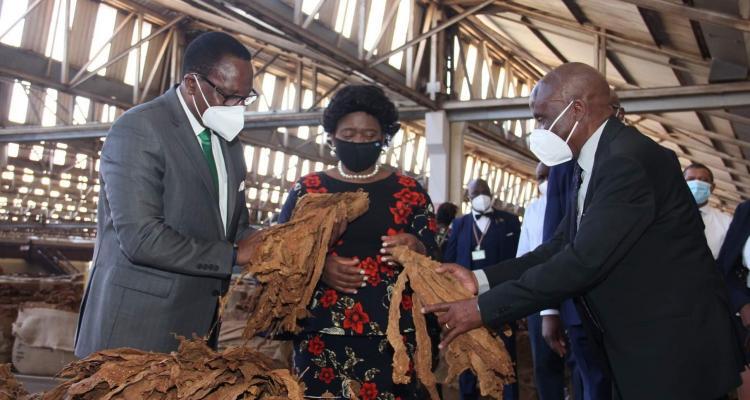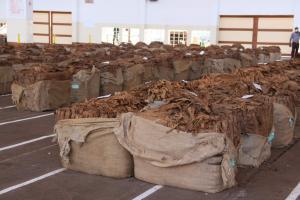
President Lazarus Chakwera says agriculture authorities should encourage cultivation of other profitable crops such as Cannabis to replace tobacco saying tobacco marketing is being affected by the anti-tobacco lobby.
The Malawi leader made the remarks today when he officially opened the Tobacco Marketing Season at Lilongwe Auction Floors
He said Malawi should to start looking for an exit strategy and encourage crop diversification because lobby groups are getting stronger.

He urged companies which buy tobacco from Malawi to assist the country in changing focus to other crops.
“To avoid being caught unawares, we need to prepare as a country because in future we would not be able to make a lot of money from tobacco,” said Chakwera.
The Malawi leader added that he can see a future where Malawian farmers are able to make massive profits from growing other crops.
Nonetheless, Chakwera noted that Malawi’s economy currently relies on tobacco and he urged stakeholders to ensure that farmers are getting good prices.
“I want a permanent solution to the malpractice by some stakeholders of charging farmers dubious levies that have not been approved by the Ministry of Agriculture. This must stop. It must stop because any senseless levies imposed on farmers increase the cost of production and decrease the farmer’s return.
“And the tobacco industry in which every player can milk the system and boost profits at the expense of the farmer is not something I will tolerate,” he said.
He added the Ministry of Agriculture should find more buyers to bring competition on the market as at the moment the industry has only nine buyers.
He also called for a change in legislation to bar tobacco traders from being included on the board of the Tobacco Commission.
This year’s tobacco marketing season has been opened under the theme: ‘Small Holder Grower, Pillar of Tobacco Industry.’
On the opening day this morning, the highest price for tobacco was $2.20 and the lowest was $1.50 per Kilogram. About 120 million kilograms are expected to be sold this year, lower than the 150 million kilograms sold last year.














